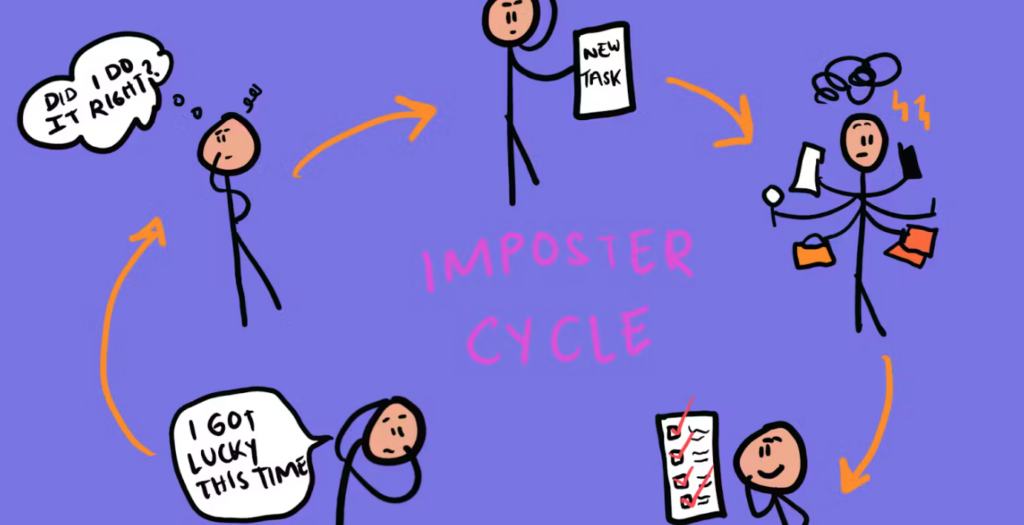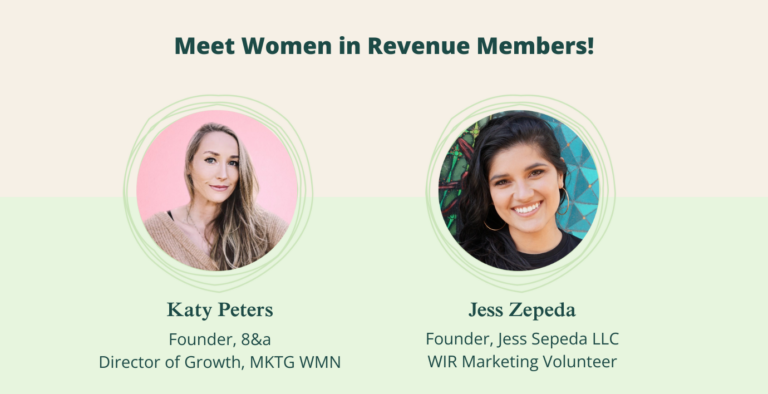Let’s be clear – you’re not an imposter, and you don’t have a syndrome. The term “imposter syndrome” is widely used in professional settings, but its common understanding is deeply flawed. For women in revenue roles, labeling an individual with imposter syndrome can be particularly harmful, reinforcing self-doubt and diverting attention from real systemic issues. It’s time to leave this term behind and take steps toward embracing your career growth with confidence. Here’s how.
A Brief History of Imposter Syndrome
The term “imposter phenomenon” was introduced in 1977 by psychologists Pauline Clance and Suzanne Imes, who observed that many high-achieving women felt like they didn’t deserve their success. While this concept was groundbreaking then, the label soon moved to a “syndrome,” which has become problematic. It frames normal self-doubt as a psychological issue rather than recognizing it as a natural part of career growth, especially in environments where women are underrepresented.
Why “Syndrome” Is Inappropriate at Work
Labelling self-doubt as a “syndrome” frames it as a medical or psychological problem, implying that there is something inherently wrong with those who experience it. However, doubting oneself is a normal reaction, especially in new or demanding roles where the pressure to perform is high. In many cases, these feelings of inadequacy are not a personal flaw but a reflection of systemic workplace biases, such as gender bias or lack of representation. When we use the term “syndrome,” it places the responsibility on individuals to “fix” themselves, rather than addressing the larger cultural and organizational issues that contribute to these feelings.
Systemic Problems with Imposter Syndrome
The concept of imposter syndrome fails to account for external barriers that can make women, particularly women of color, feel out of place. Workplace culture, gender bias, and a lack of representation all contribute significantly to these feelings. Labeling these experiences as a “syndrome” places the responsibility on individuals to overcome their doubts rather than addressing the structural inequities that perpetuate them. It’s time to recognize that the issue often lies in the environment, not in the individual.
The Impact of Labeling Women with a ‘Syndrome’ at Work
Calling a woman’s waning confidence or self-doubt a “syndrome” pathologizes natural feelings, invalidates authentic experiences, and shifts the focus away from productive changes needed by both the individual and the system. The “syndrome” label reinforces the idea that women must fix themselves rather than advocate for organizational improvements that promote diversity and inclusivity. It’s time to understand these feelings as part of a broader cultural and professional challenge rather than a personal flaw.
What to Do Instead
Here’s how one can redefine their approach to overcoming self-doubt and grow confidently in their careers:
1. Get Comfortable Learning Something New
Future leaders must embrace lifelong learning. Self-doubt often signals that you’re stepping out of your comfort zone and expanding your skills. When challenges arise, treat them as growth opportunities rather than signs of inadequacy.
2. Progress Over Perfection
Perfectionism can be paralyzing. Instead of aiming for flawlessness, focus on setting progress-based goals. Tracking your development over time and celebrating small wins can help build momentum. Continuous improvement, rather than perfection, should be your goal.
3. Get Curious About Self-Doubt
Instead of ignoring self-doubt, explore it. Ask yourself where these feelings stem from—are they due to a lack of experience, skills, or systemic barriers? Understanding their origins can help transform self-doubt into a tool for growth and reveal areas for development.
4. Aim to Make Mistakes
Mistakes are essential for learning. Keeping a “misses tracker” to record any setbacks can help normalize making mistakes as part of your growth journey. Each “miss” provides a valuable learning opportunity that brings you closer to your goals.
Defining Belonging and Setting Your Table
Belonging is about owning your space and asserting your presence confidently, even if you’re surrounded by people who don’t look like you. It’s important to communicate the value of your unique perspective and advocate for diversity in thought and approach.
Action Step: Connect with other women in revenue who have faced similar challenges. Seek mentorship and guidance from those who have navigated similar paths and can provide valuable insights.
Own Your Success and Create a Legacy
1. Build a Success Table
Document your achievements regularly and share them with your network. Creating a “success table” where you list your accomplishments helps reinforce your capabilities and breaks down biases. This can also serve as a valuable record of your growth.
2. Pave the Way for Others
Be the mentor you wish you had. Actively support other women or underrepresented individuals to succeed. This not only helps others but also contributes to creating a more inclusive workplace.
3. Challenge the ‘Syndrome’ Label
Educate others about why “imposter syndrome” is a misleading term. Host “lunch and learn” sessions to discuss alternative approaches that address systemic issues rather than labeling individuals. Create awareness around the negative impact of attributing self-doubt to a syndrome, especially among underrepresented groups.
What Not to Do
While focusing on proactive steps is crucial, there are behaviours to avoid to truly break free from the imposter label:
- Don’t Call Yourself an Imposter or Claim to Have a Syndrome
Avoid reinforcing a false narrative that something is inherently wrong with you. Self-doubt is simply an early indicator of growth, not a flaw. - Don’t Wait for Validation
Seeking constant external approval keeps you trapped in self-doubt. Celebrate your wins independently and recognize your worth without needing others to validate you. - Avoid Comparisons
Comparison is the thief of joy. Everyone’s career path is different, so focus on your own progress instead of measuring yourself against others. - Don’t Strive for Perfection
Perfectionism is paralyzing. Set realistic goals and view mistakes as learning experiences. Aim for continuous progress. - Don’t Dismiss Your Achievements as ‘Luck’ or ‘Timing’
Own your success and recognize the effort and skills behind it. You’re not just lucky—you’re capable and deserving. - Don’t Isolate Yourself When You’re Struggling
Reach out to trusted colleagues, mentors, or friends. Sharing your feelings normalizes self-doubt and provides valuable support. - Avoid Overloading Yourself to Prove Your Worth
Taking on too much work to demonstrate your capabilities can lead to burnout. Set boundaries and understand that saying “no” is a strength, not a weakness.
By avoiding these common traps, you can foster a mindset focused on growth, resilience, and self-acceptance.
Want more support and resources like this? Join the Women in Revenue community for ongoing content, networking, and mentorship opportunities. Together, we can redefine what it means to belong and thrive in the workplace.




